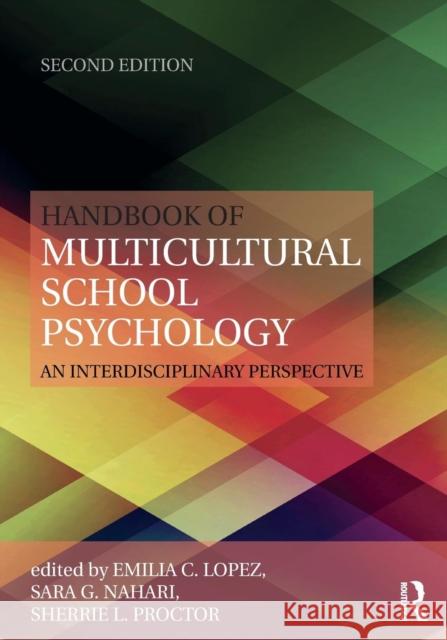Handbook of Multicultural School Psychology: An Interdisciplinary Perspective » książka
Handbook of Multicultural School Psychology: An Interdisciplinary Perspective
ISBN-13: 9780415844062 / Angielski / Miękka / 2017 / 466 str.
Handbook of Multicultural School Psychology: An Interdisciplinary Perspective
ISBN-13: 9780415844062 / Angielski / Miękka / 2017 / 466 str.
(netto: 603,92 VAT: 5%)
Najniższa cena z 30 dni: 579,30
ok. 16-18 dni roboczych.
Darmowa dostawa!
The second edition of the Handbook of Multicultural School Psychology continues the mission of its predecessor, offering a comprehensive, interdisciplinary view of the field of multicultural school psychology and addressing the needs of children and families from diverse cultural backgrounds. The revised organizational structure includes the following: History and Professional Issues; Consultation and Collaboration; Interventions Focused on Academic and Mental Health Issues; Data-based Decision Making; Systems-based Issues; Training and Research; and Future Perspectives. Nineteen of the volume's twenty-three chapters are completely new to this edition, while the rest have been effectively revised and updated. Comprehensive--In seven sections, this book covers theoretical, research, and practical concerns in a wide range of areas that include multicultural and bilingual issues, second language acquisition, acculturation, parent collaboration, research, and systemic issues. Chapter Structure--Chapter authors follow a uniform structure that includes theoretical and research issues and implications for practice. Recent practice and training guidelines including Blueprint for Training and Practice III (2006), NASP Model for Comprehensive and Integrated School Psychological Services (2010), and APA Multicultural Guidelines (2003) are covered. Interdisciplinary Perspective--Contributing authors are from a wide range of related fields that include school psychology, special education, general education, early childhood education, educational psychology, clinical psychology, counseling, and mental health, thus exposing readers to theory and research from various approaches. Changes--New to this edition is a section focusing on systemic issues such as overrepresentation of culturally and linguistically diverse (CLD) students in special education, prejudice, response to intervention (RTI) for CLD students and English Language Learners (ELL), and end-of-chapter discussion questions. This book is ideal for graduate courses and seminars on multicultural school psychology. It is also a useful reference for researchers and practicing school psychologists and the libraries that serve them.











